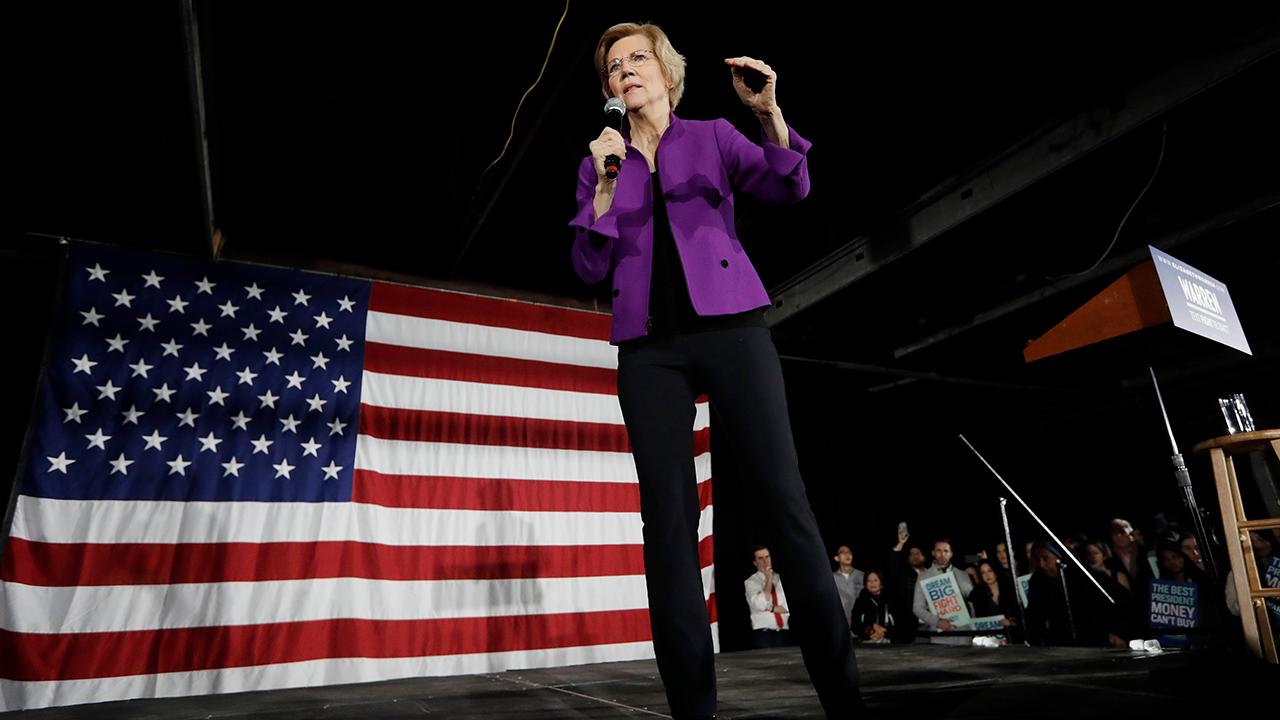Warren vs. Sanders: Are the progressive candidates actually the same?
Sens. Elizabeth Warren and Bernie Sanders will face off for the first time during the second Democratic debate in Detroit on Tuesday night, putting the uneasy truce between the two presidential candidates to the litmus test.
The two lawmakers are often viewed as the same flipside of the coin; afterall, as liberal populists, they share a long list of policy proposals intended to overhaul the current economic system, bringing assistance to working- and middle-class Americans. Warren, D-Mass., has proposed a plan to eliminate student loan debt for 42 million Americans, or about three out of four borrowers. Sanders, I-Vt., released a similar plan to eliminate all student loan debt. Sanders supports Medicare-for-all; so does Warren. Both support universal childcare, and they both want to raise the national minimum wage to $15 per hour. Neither candidate accepts big campaign donors.
But there are also key ideological differences between the candidates, evident as they jockey for second place in early 2020 polls, dividing progressive support.
For starters, Warren is a self-avowed capitalist who believes in regulating big business.
“I believe in markets,” she said in a recent interview with Vox. “I believe in the benefits that come from markets, that two people coming together, or two companies, or a company and a person coming together to exchange goods and services, yay. That’s how we build a lot of wealth in this country and a lot of innovation and create a lot of opportunity.”
She stressed, however, that despite believing in the fundamentals of capitalism, “markets without rules are theft.” Essentially: If there’s going to be a market and a capitalistic economy, it needs to be regulated — and there are some areas, like health care and public education, that markets don’t work at all. She wants to jail executives by expanding criminal liability to any executive who oversees a company that “causes severe and widespread harm to families,” and she supports breaking up some of the biggest technology companies in the U.S., including Facebook, Amazon and Google.
Conversely, Sanders is a self-avowed Democratic socialist, a firebrand politician who frequently refers to his astronomical rise in the 2016 presidential election, and continued popularity, as a political revolution. That also means he doesn’t believe the system can be fixed, like Warren.
“We have to talk about democratic socialism as an alternative to unfettered capitalism, where the rich get richer and almost everybody else is getting poorer,” he said during an interview with The Nation. “I think that’s a message that young people are receptive to, and I think it’s a message that working people are receptive to.”
CLICK HERE TO GET THE FOX BUSINESS APP
Sanders' policies might not be unique like they were during the 2015 primary, but he's the only self-declared anti-capitalist candidate, denouncing "unfettered capitalism" in policy speeches.
“In 2008, after their greed, recklessness, and illegal behavior created the worst financial disaster since the Great Depression — with millions of Americans losing their jobs, losing their homes, losing their life savings — Wall Street’s religious adherence to unfettered capitalism suddenly came to an end. Overnight, Wall Street became big-government socialists and begged for the largest federal bailout in American history," he said during a key speech defending democratic socialism.




















